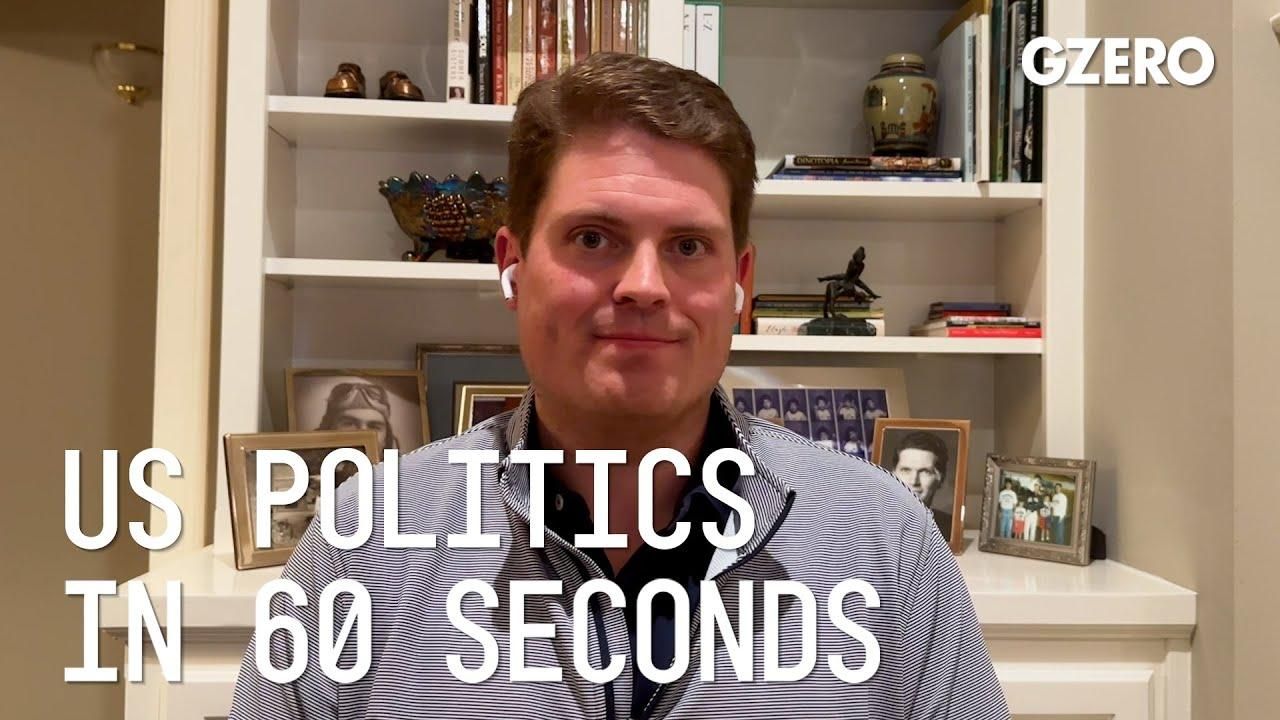US Politics In 60 Seconds
Zelensky tells Congress US aid is only path to war resolution

Zelensky Tells Congress US Aid Is Only Path to War Resolution | US Politics in :60 | GZERO Media

Clayton Allen, Director for the United States at Eurasia Group, shares his perspective on US politics.
How well President Zelensky did in his speech to a joint session of Congress earlier this evening?
Stylistically, Zelensky did well. He came to make an impassioned appeal and his speech fit that to a T. He contextualized Ukraine's struggle through comparison to major US battles like the Battle of the Bulge or Saratoga, something which clearly resonated with his audience. While he hit his mark tonight though, the impact of his speech on US policy might not be fully clear until the second half of next year. Congress is set to approve about $45 billion in additional aid for Ukraine in the coming days. Zelensky came to convince members, specifically the incoming Republican House majority that even more is needed.
The new Republican majority has expressed concern over the lack of a clear endgame for the war and a lack of oversight in how aid has been spent and has said that it won't provide a "blank check" for Ukraine next year. However, this doesn't mean "no check," and there's still very strong bipartisan support for assisting Ukraine. Zelensky did try to address some of Republican's concerns by talking about how increased US aid is the only way to accelerate progression towards a resolution. With Congress unlikely to vote on any new aid packages until next fall though, when this $45 billion aid tranche runs out, Zelensky's speech is far from the last word on the matter, and it really previews what's likely to be a high profile advocacy campaign through most of next year.
Pretty much everyone compared Zelensky to Churchill and while that maybe sets an unfairly high bar, there are some interesting parallels. Churchill was the last wartime leader to address a joint session of Congress and like Britain, Ukraine is leaning on US Military aid in its fight against a large and very well-resourced foe. However, unlike in World War II with the US dead set against sending troops or becoming directly involved, that military aid is even more crucial for Zelensky, something which came across very clearly tonight.
Ian Bremmer sits down with former US Ambassador to NATO Ivo Daalder to unpack a historic shift in the transatlantic alliance: Europe is preparing to defend itself without its American safety net.
Think you know what's going on around the world? Here's your chance to prove it.
Argentina, Armenia, Belarus, Egypt, Indonesia, Jordan, Pakistan, Paraguay, Vietnam – to name only a few.
A poster featuring Andrew Mountbatten-Windsor, formerly known as Prince Andrew, is installed on a sign leading to the parking area of the Sandringham Estate in Wolferton, as pressure builds on him to give evidence after the U.S. Justice Department released more records tied to the late financier and convicted sex offender Jeffrey Epstein, in Norfolk, Britain, February 5, 2026.
British police arrested former Prince Andrew Mountbatten-Windsor today over allegations that in 2010, when he was a UK trade envoy, he shared confidential government documents with convicted sex offender Jeffrey Epstein.